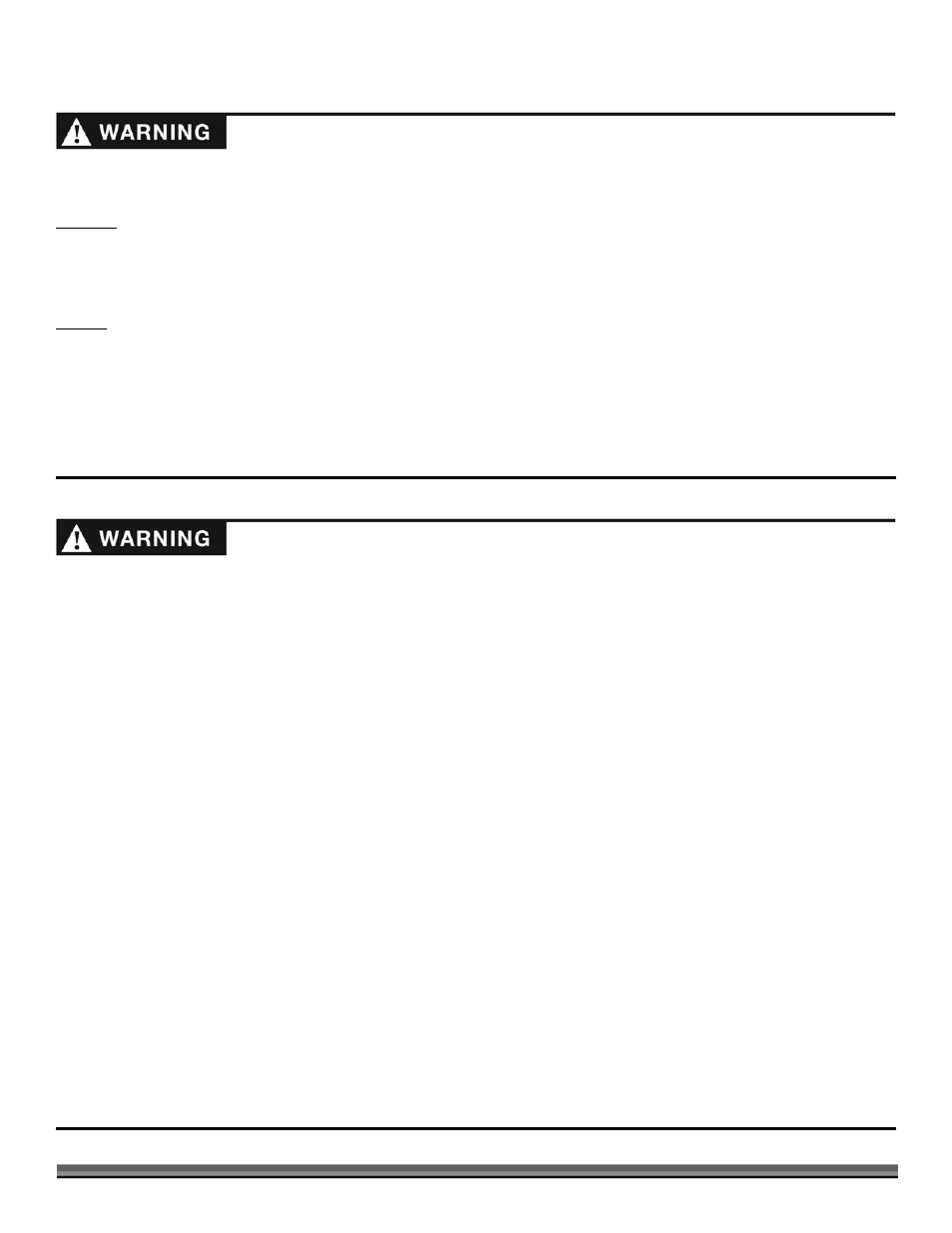DR Power Tow Behind Premier 12.5hp B&S User Manual
Page 5

CONTACT US AT www.DRpower.com 5
Use of machinery on slopes is a major factor related to accidents, which can result in severe personal injury. Use of
machinery on slopes requires caution. If you feel uneasy using the TOW-BEHIND DR FIELD and BRUSH MOWER on a slope,
do not operate it. Always take the following precautions when using this machine on slopes:
ALWAYS:
Operate the machine up and down the face of slopes and avoid going across. Exercise extreme caution when changing
direction on slopes.
Remove objects such as glass, large sticks, stones, metal objects, wire, rope, and string-like material.
Watch for holes, ruts, and bumps on the ground.
NEVER:
Never operate near drop-offs, ditches, or embankments; you could lose control of your tow vehicle and/or the TOW-BEHIND
DR FIELD and BRUSH MOWER.
Never operate on slopes greater than 20 degrees, or on any excessively steep slope. See the operating parameters section on
page 21 for further restrictions relating to your tow vehicle.
Never operate on wet, or slippery slopes. Reduced traction could result in tipping over your tow vehicle and/or the TOW-
BEHIND DR FIELD and BRUSH MOWER.
Never park the tow vehicle on a steep grade or slope.
Slope Operation
Safety with Gasoline - Powered Machines
Gasoline is a highly flammable liquid. Gasoline also gives off flammable vapor that can be easily ignited and cause a fire or
explosion. Never overlook the hazards of gasoline. Always follow these precautions:
Never run the engine in an enclosed area or without proper ventilation as the exhaust from the engine contains carbon
monoxide, which is an odorless, tasteless, and deadly poisonous gas.
Store all fuel and oil in containers specifically designed and approved for this purpose and keep away from heat and open
flame, and out of the reach of children.
Replace rubber fuel lines and grommets when worn or damaged and after 5 years of use.
Fill the gasoline tank outdoors with the engine off and allow the engine to cool completely. Don't handle gasoline if you or
anyone nearby is smoking, or if you're near anything that could cause it to ignite or explode. Reinstall the fuel tank Cap and
fuel container cap securely.
If you spill gasoline, do not attempt to start the engine. Move the machine away from the area of the spill and avoid creating
any source of ignition until the gas vapors have dissipated. Wipe up any spilled fuel to prevent a fire hazard and properly
dispose of the waste.
Allow the engine to cool completely before storing in any enclosure. Never store a machine that has gas in the tank, or a fuel
container, near an open flame or spark such as a water heater, space heater, clothes dryer or furnace.
Never make adjustments or repairs with the engine running. Shut down the engine, disconnect the spark plug wire, keeping it
away from the spark plug to prevent accidental starting, wait 5 minutes before making adjustments or repairs.
Never check for an ignition spark with the spark plug or spark plug wire(s) removed. Always use an approved spark tester.
Never tamper with safety devices. Regularly check their proper operation.
Never change the engine governor settings or modify the engine speed. Modifications will void your warranty.
To reduce fire hazard, keep the engine and muffler area free of debris build-up such as leaves, grass, oil, grease, or any other
combustible material. Clean the engine area after each use.
Never operate the engine without the muffler. Inspect the muffler periodically and replace if necessary. If the engine is
equipped with a muffler deflector, inspect it periodically and replace if necessary.
Never cover the machine while the muffler is still hot.
Do not operate the engine with the air cleaner or the carburetor air intake cover removed. Removal of such parts could create
a fire hazard. Do not use flammable solutions to clean the air filter.
The muffler and engine become very hot and can cause a severe burn; do not touch.